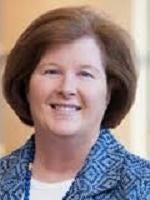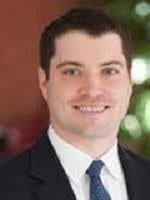The DOJ’s theory of falsity based on clinical disagreement alone fails as a matter of law.
In a closely watched False Claims Act (FCA) proceeding by the healthcare industry and FCA practitioners, the US District Court for the Northern District of Alabama ruled in favor of a national hospice provider and dismissed the action, rejecting the US Department of Justice’s (DOJ’s) legal position that falsity can be established solely by retrospective clinical disagreement.[1] Chief Judge Karon Bowdre’s seven-page opinion explains and resolves this important FCA legal issue with elegant and devastating simplicity, ensuring that the decision will be a strong and influential precedent for pending and future cases focused on asserting FCA liability for mere clinical disagreements or subjective interpretations of medical record documentation.
The DOJ alleged that AseraCare provided hospice services to Medicare beneficiaries who did not satisfy hospice eligibility criteria based on a retrospective review of the medical record. To show that AseraCare’s claims were objectively false, the DOJ relied solely on its medical expert’s review of patient medical records. AseraCare offered its own experts to testify that the records did support hospice eligibility. The case then boiled down to clinical disagreements between medical professionals. Following an initial favorable jury verdict for the DOJ, the court realized that it had incorrectly instructed the jury on the element of falsity and granted a new trial. The court concluded that the DOJ was required to show objective falsehood by something more than mere clinical disagreement and provided the DOJ with an opportunity to support its fraud theory against the hospice provider with evidence beyond mere clinical disagreement. The DOJ could not make this crucial evidentiary showing. Accordingly, on March 31, the court granted summary judgment in favor of AseraCare, concluding that “contradiction based on clinical judgment or opinion alone cannot constitute falsity under the [FCA] as a matter of law.”[2]
The decision is consistent with longstanding FCA precedent that requires an objective falsehood to give rise to liability under the FCA.[3]
The court reasoned that “[w]hen hospice certifying physicians and medical experts look at the very same medical records and disagree about whether the medical records support hospice eligibility, the opinion of one medical expert alone cannot prove falsity without further evidence of an objective falsehood.”[4] The court noted that the government’s own clinical expert changed his mind on the asserted clinical ineligibility findings several times over a three-year period of the review.
AseraCare is a notable defeat for the government’s assertion of FCA liability against healthcare providers under alleged failure to document sufficiently in the medical record enough information to show “medical necessity”—a legal theory that the DOJ has been pursuing against a growing number of healthcare providers. In all of these cases, the DOJ has alleged that providers violated the FCA because a medical expert disagreed with the clinical judgment of a patient’s healthcare provider after a retrospective review of medical records, a function that is more within the expertise of the Medicare contractor and administrative law process. Healthcare providers are understandably frustrated to have legitimate clinical disagreements labeled as fraudulent practices with no nexus to actual false claims or any evidence of objective falsehood related to a claim.
The AseraCare decision explicitly rejects the DOJ’s approach to FCA liability, noting, “[i]f the court were to find that all the Government needed to prove falsity in a hospice provider case was one medical expert who reviewed the medical records and disagreed with the certifying physician, hospice providers would be subject to potential FCA liability any time the Government could find a medical expert who disagreed with the certifying physician’s clinical judgment. The court refuses to go down that road.”[5] In a gesture of poetic license, the court illustrated the common-sense logic of this position by quoting famed 17th century French mathematician Blaise Pascal: “Contradiction is not a sign of falsity, nor the lack of contradiction the sign of truth.”
[1] United States ex rel. Paradies v. AseraCare, 2:12–CV–245–KOB, Dkt. #497 (N.D. Ala. March 31, 2016) available at https://ecf.alnd.uscourts.gov/doc1/01914124528.
[2] AseraCare at 7.
[3] See e.g., United States v. Aegis Therapies, No. CV-210-072, 2015 WL 1541491, at *12 (S.D. Ga. Mar. 31, 2015); United States ex rel. Phalp v. Lincare Holdings, Inc., 116 F. Supp. 3d 1326, 1360 (S.D. Fla. 2015); United States ex rel. Geschrey v. Generations HealthCare, LLC, 922 F.Supp. 2d 695 (N.D. Ill. 2012); United States ex rel. Parato v. Unadilla Health Care Ctr. Inc., 787 F. Supp. 2d 1329, 1339 (M.D. Ga. 2011); United States v. Prabhu, 442 F. Supp. 2d 1008 (D. Nev. 2006).
[4] AseraCare at 1-2.
[5] AseraCare, at 5-6.






 />i
/>i

